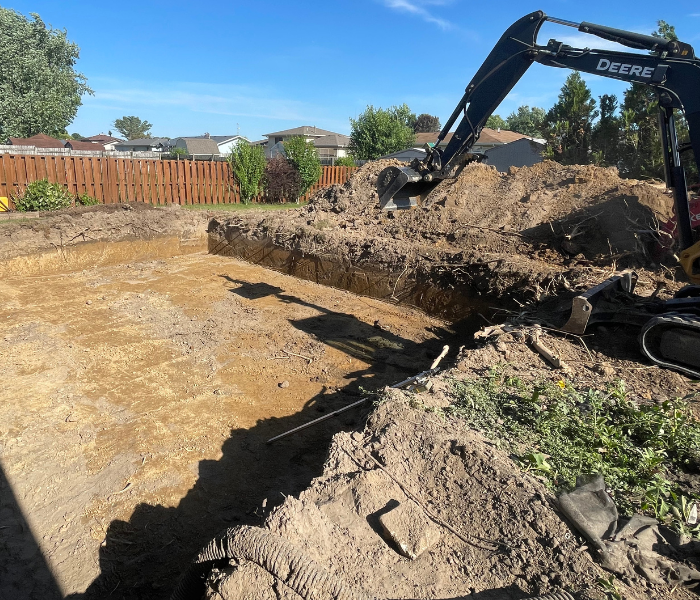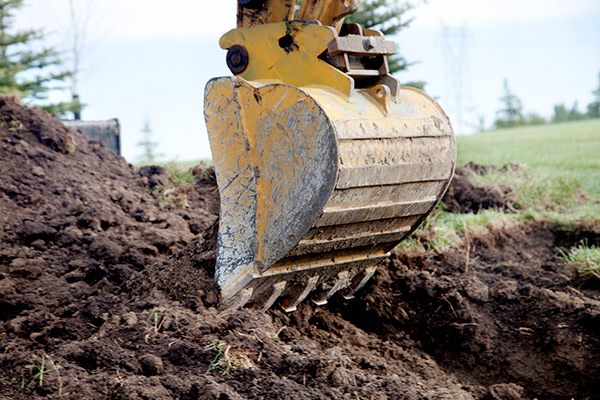Septic Ohio - Comprehensive Septic System Services in Ohio
Septic Ohio - Comprehensive Septic System Services in Ohio
Blog Article
Comprehensive Excavation Methods: Understanding the Basics for Success
In the world of building and civil engineering, the value of effective excavation methods can not be overstated. The mindful preparation, accurate implementation, and thorough attention to detail needed in excavation tasks require an extensive technique that incorporates various essential facets. From initial dirt analysis to the execution of safety and security steps and regular progression monitoring, grasping these core aspects is essential for accomplishing success in any type of excavation venture. Nonetheless, truth proficiency lies not merely in understanding these fundamentals however in perfectly integrating them to navigate the complexities of excavation tasks with skill.
Understanding Excavation Task Preparation

The preliminary phase of any kind of excavation project is the preparation phase, where critical decisions are made that can dramatically impact the outcome of the job. Understanding the task extent, budget, and timeline restrictions is important for creating a comprehensive excavation plan that guarantees the job's success.
One secret aspect of excavation task planning is the growth of an in-depth timeline that describes the series of landmarks, tasks, and due dates. By very carefully thinking about all these elements throughout the planning stage, excavation projects can be performed efficiently and successfully, leading to successful outcomes - excavating ohio.
Soil Evaluation and Website Examination
Carrying out thorough soil analysis and website evaluation is a critical step in the prep work stage of any excavation job. Dirt evaluation entails identifying the structure, framework, and homes of the dirt at the excavation website. This details is essential for comprehending the dirt's bearing ability, dampness web content, and possibility for erosion, which are essential aspects in establishing the excavation methods and equipment needed for the task.
Website evaluation surpasses dirt evaluation and encompasses a broader assessment of the general site conditions. This assessment includes determining any type of prospective risks, such as underground utilities, ecological problems, or unpredictable surface, that can impact the excavation process. By thoroughly examining the website, task supervisors can create reliable excavation strategies that focus on safety, efficiency, and environmental management.
Making use of innovative technologies like ground-penetrating radar, soil tasting, and drone surveys can enhance the precision and effectiveness of soil analysis and website evaluation. Spending time and sources in these preliminary steps can ultimately conserve time and stop expensive delays or issues throughout the excavation process.
Equipment Option and Use
Effective excavation projects rely greatly on critical devices option and application to guarantee optimal efficiency and performance. Selecting the best tools for the work is important in making best use of efficiency and decreasing downtime. Factors such as the kind of soil, depth of excavation, and project range play a considerable function in establishing the most suitable equipment for the task at hand.

Along with selecting the ideal equipment, proper usage is essential to project success. Operators has to be educated to take care of the tools securely and successfully - lancaster trenching. Routine maintenance checks and timely repair work help avoid break downs and guarantee consistent efficiency throughout the task
Safety Procedures and Laws Compliance
In the world of excavation tasks, focusing on precaution and compliance with laws is extremely important to making sure a safe and lawfully sound operational setting. Security procedures include a series of practices, consisting of carrying out extensive site analyses, carrying out proper signs and barriers, and providing ample security training for all personnel entailed in the excavation process. Adherence to regulations, such as OSHA needs in the United States, makes certain that the excavation job satisfies the required criteria to shield workers, bystanders, and the surrounding setting.

Tracking Development and Adjusting Techniques
How can forecast supervisors efficiently track the innovation of excavation projects and adjust their strategies appropriately to optimize outcomes? Surveillance progress is necessary for ensuring that excavation jobs stay on track and satisfy target dates.

Conclusion
In verdict, grasping the fundamentals of thorough excavation methods is vital for the success of any helpful resources task. By comprehending project preparation, assessing dirt and website problems, selecting ideal devices, adhering to security regulations, navigate to these guys and monitoring development, job supervisors can make sure a efficient and smooth excavation process. Carrying out these strategies will certainly cause successful end results and reduce possible dangers or setbacks during the excavation task.
The preliminary stage of any excavation job is the planning stage, where critical decisions are made that can dramatically impact the result of the task. Comprehending the task timeline, range, and spending plan restrictions is essential for producing a detailed excavation plan that makes sure the job's success.
Exactly how can forecast supervisors effectively track the improvement of excavation jobs and adjust their approaches accordingly to optimize outcomes? By closely checking progression and being willing to adjust strategies, project managers can improve the general success of excavation jobs.
By recognizing task preparation, assessing dirt and website problems, picking ideal tools, abiding with safety and security laws, and checking progression, task supervisors can make sure a smooth and reliable excavation process.
Report this page